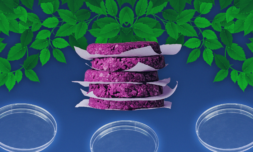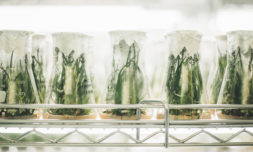Next month, a new mandatory food waste recycling program will be implemented in California. All food scraps will be collected from homes by the state, then composted or turned into renewable energy.
New years’ resolutions are typically personal goals we set to try to get a little closer to being the best version of ourselves. But the state of California is introducing a new law for its residents starting in 2022 – and this time it’s for the wellbeing of our planet.
The agriculture industry is hugely responsible for global warming. This year, the U.S. Environmental Protection Agency announced that discarded food is responsible for 15 percent of the America’s total methane gas emissions.
Though global methane emission levels are lower than the level of carbon emissions, the gas is a particularly potent short-term contributor to climate change. In their first 20 years in the atmosphere, methane particles warm up the planet 80 times more than carbon dioxide does.
A shocking 40 percent of food produced in America goes to waste each year – and when organic matter like fruit peels, meat bones, and vegetables scraps are thrown out, they emit methane gas as they naturally decompose inside garbage landfills.





















